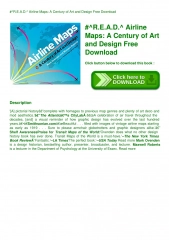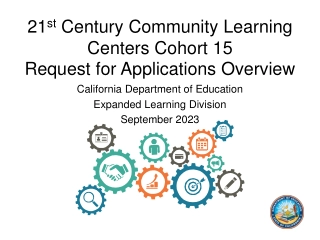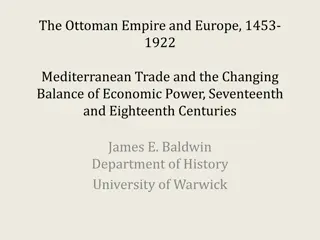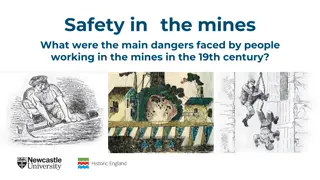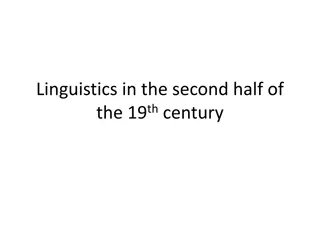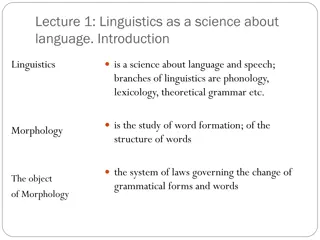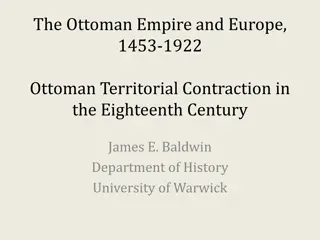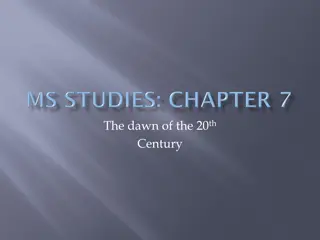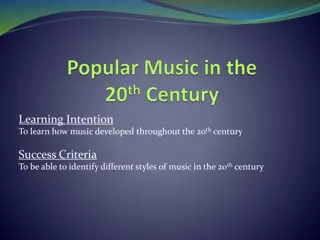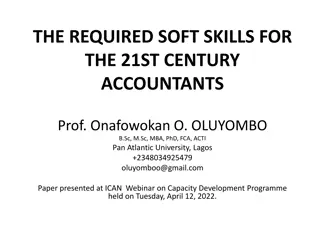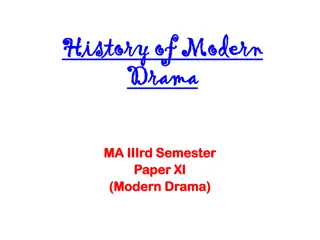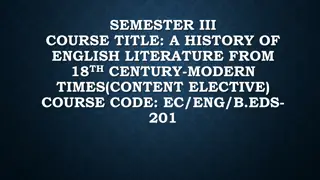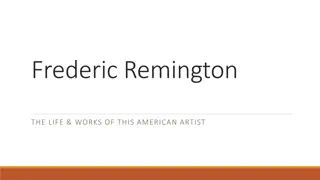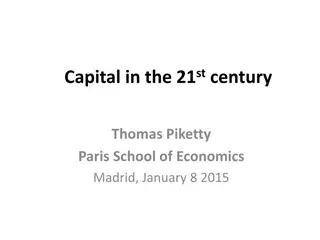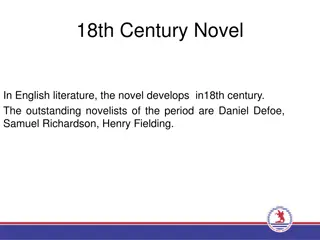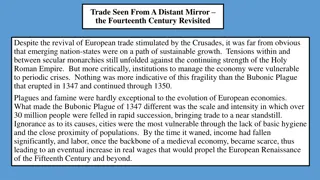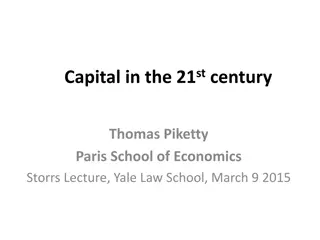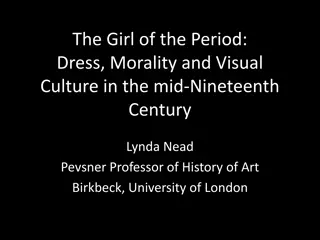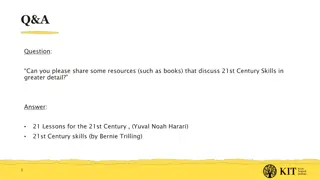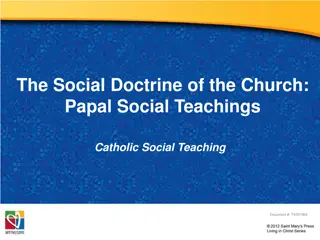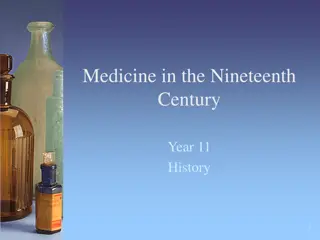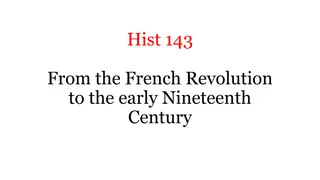Class Group Mastery Adapting to 21st Century Learning
The traditional image of a classroom \u2013 rows of desks facing a teacher dispensing knowledge \u2013 is increasingly incompatible with the realities of modern learning. The 21st century demands critical thinkers, collaborators, and innovators, requiring a fundamental shift in how we approach educa
3 views • 3 slides
#^R.E.A.D.^ Airline Maps A Century of Art and Design Free Download
#^R.E.A.D.^ Airline Maps A Century of Art and Design Free Download
1 views • 1 slides
Reform Efforts in the Ottoman Empire: 18th and 19th Century Transformations
The Ottoman Empire underwent a series of reforms from the late 18th to the 19th century, aiming to centralize power, boost revenues, strengthen the military, educate bureaucrats, refine legal systems, and improve healthcare. Factors driving these reforms included military weaknesses, separatist nati
0 views • 19 slides
21st Century Community Learning Centers Cohort 15 Overview
This document provides an overview of the 21st Century Community Learning Centers Cohort 15 Request for Applications by the California Department of Education's Expanded Learning Division. It includes information on objectives, background, purpose, components, eligibility, application process, and f
0 views • 44 slides
Ottoman-European Economic Relations and Mercantilism in the 16th Century
The Ottoman Empire and Europe traded various goods in the 16th century, with a negative trade balance favoring the Ottomans. Institutional innovations like the Joint-Stock Company and the Levant Company emerged to facilitate trade and secure better terms. Mercantilist policies were implemented to re
2 views • 15 slides
The Environmental Context of Health
Explore the evolution of environmental influences on health from ancient civilizations to the modern era. From the recognition of the environment's role in disease in ancient times to the focus on sanitation in the 19th century and the current exploration of various contributors to health and diseas
5 views • 18 slides
Dangers Faced by Miners in 19th Century Mines
Mines in the 19th century were perilous workplaces with dangers such as flooding, getting trapped, poor ventilation leading to health issues, explosions from fire-damp, and the risk of being crushed. Tragic incidents like the Huskar pit disaster in 1838 and the New Hartley Colliery disaster in 1862
2 views • 9 slides
Enhancing 21st Century Skills of Primary School Students through Improved Literacy
Students' 21st-century skills can be developed by improving literacy skills in reading, writing, speaking, and problem-solving. This study focuses on training teachers to enhance students' skills through a constructivist approach, project worksheets, and assessments in various subjects. Action resea
3 views • 7 slides
Linguistics in the Second Half of the 19th Century: Schleicher, Psycholinguistics, Neogrammarian Theories
August Schleicher's biological approach to language, including his Stammbaumtheorie, aligned with Darwinian ideas prevalent in the 19th century. The origins of psycholinguistics can be traced back to Heymann Steinthal, who advanced the psychology of language. This period saw critical developments in
4 views • 22 slides
Linguistics: Exploring Language Structure and Morphology
Linguistics is the scientific study of language and speech, encompassing branches like phonology, lexicology, and morphology. This field delves into the levels of language structure, such as phonological, morphological, lexical, syntactic, semantical, pragmatical, and stylistical. Scholars began inv
8 views • 7 slides
Ottoman Empire Territorial Contraction in the 18th Century
Ottoman Empire faced agricultural and fiscal crises in the 17th century, leading to internal rebellions. However, by the mid-17th century, the empire had recovered and experienced further expansion, albeit at a slower rate compared to the previous century. In the 18th century, the Ottomans suffered
2 views • 12 slides
Understanding Fluid Therapy in Veterinary Medicine
In the nineteenth century, fluid therapy was limited to severely ill patients, but now both veterinary and human medicine utilize intravenous fluid therapy extensively. Dehydration can have serious consequences, and isotonic replacement fluids are essential based on estimated dehydration, maintenanc
1 views • 20 slides
FY23 Army Accomplishments and Priorities for National Guard in 21st Century
Notable accomplishments in FY23 include modernizing various military equipment for the Army, such as M1 Abrams tanks and Black Hawk helicopters, while also focusing on the National Guard's priorities for deployability, sustainability, and interoperability in the 21st century. Legislative updates for
1 views • 5 slides
Lost and Found: 19th Century Finnish Literature Exploration
Exploring the 19th-century Finnish literature through archives, bibliographies, and digital methods. Efforts to improve metadata, discover new knowledge about authors and works, and reconstruct the literary system disrupted by historical events like the Great Fire of Turku.
1 views • 12 slides
Challenges and Inequalities in Mississippi at the Turn of the 20th Century
Challenges faced by Mississippians at the dawn of the 20th century include populist efforts for betterment, adoption of laws promoting segregation and lynching, societal masks worn by Black Mississippians, demographic disparities, Jim Crow laws, and the neglect of education due to a weak economy and
0 views • 48 slides
Evolution of Music: Exploring 20th Century Styles
Discover how music evolved throughout the 20th century, tracing its development from genres like Blues, Spiritual, Jazz, Big Band/Swing, Rock 'n' Roll, and Pop. Explore the origins and influences of each style, from the improvisational roots of Blues to the iconic sounds of Rock 'n' Roll and the ris
0 views • 13 slides
Soft Skills in the 21st Century: A Key Focus for Accountants
Soft skills are essential for accountants in the 21st century to excel professionally. Prof. Onafowokan O. Oluyombo highlights the importance of communication, interpersonal skills, flexibility, time responsiveness, teamwork, work ethics, and a positive attitude. These skills enhance employability,
0 views • 19 slides
Evolution of Modern Poetry in the 20th Century
Modern poetry in English emerged in the early 20th century as a reaction to Victorian formalism. Modernists drew inspiration from diverse literary traditions, including Greek, Chinese, and Japanese poetry, to create works that depicted social changes and the impact of World War I. Themes of material
1 views • 7 slides
Evolution of Modern Drama in English Literature: A Comprehensive Overview
Modern drama in English literature evolved through different phases from the late 19th to the mid-20th century, showcasing innovative techniques and themes. The revival of drama in the 20th century brought forth various trends and currents, reflecting social issues and nationalistic sentiments. This
0 views • 7 slides
Evolution of Modern Drama in the 20th Century: Characteristics and Trends
Modern drama in the 20th century experienced a revival and various trends. Realism was a significant quality where dramatists like Ibsen focused on portraying real problems of life. Problem plays emerged, addressing societal issues like marriage and justice. Modern drama shifted towards being a stag
1 views • 14 slides
SUD Life Century Gold - Individual Saving Life Insurance Plan
SUD Life Century Gold is a Non-Linked, Non-Participating Individual Savings Life Insurance Plan offering flexibility in policy and premium paying terms. It provides two plan options - Goal Sure and Edu Sure, with guaranteed additions and tax benefits under Section 80C and Section 10(10D) of The Inco
0 views • 13 slides
Exploring English Literature from the 18th Century to Modern Times
This course focuses on major literary movements from the 18th century to modern times, examining the history of modern literature and exploring overlapping trends and traditions. Students will critically analyze historical texts, write organized critical essays, understand word structures, and grasp
1 views • 9 slides
Evolution of Microscopes: From Reading Stones to Phase-Contrast Microscopy
The history of microscopes dates back to the 11th century with the invention of the reading stone, leading to the creation of wearable eyeglasses in the 13th century. The first microscope was developed in the late 16th century by Zacharias Jansen, paving the way for the compound microscope and the t
0 views • 17 slides
Overview of Analytical Positivism in Legal Theory
The Analytical Positivism school, also known as the Austinian school, emphasizes a sharp separation between law and morality. It views law as a command and emphasizes the importance of law as it is, rather than how it ought to be. This approach, championed by thinkers like John Austin and Jeremy Ben
0 views • 19 slides
The History and Significance of the Modern Periodic Table
Chemists in the nineteenth century categorized elements based on similarities in properties, leading to the development of the modern periodic table. Dmitri Mendeleev and Lothar Meyer played key roles in organizing elements by atomic mass and predicting unknown elements. Mendeleev's accurate predict
0 views • 17 slides
Evolution of Crime and Punishment through History
Explore the main causes of crime in England and Wales during the sixteenth and seventeenth centuries, focusing on poverty, heresy, vagrancy, and treason. Discover the impact of religious changes during this time, with shifts between Catholicism and Protestantism leading to significant social unrest.
1 views • 23 slides
Frederic Remington: American Artist of the Old West
Frederick Remington, born in 1861, was a renowned American artist known for his realistic depictions of cowboys, cavalrymen, American Indians, and wildlife in the Old West. His works captured the drama and action of Western life, inspiring a love for the outdoors and rustic living. Despite initial s
0 views • 6 slides
Global Analysis of Income and Wealth Inequality Trends Since the 18th Century
Presentation based on "Capital in the 21st Century" by Thomas Piketty, exploring income and wealth distribution dynamics from the 18th century across 20+ countries. The focus is on shifting from rising income inequality to rising wealth inequality, analyzing the long-term evolution of capital/income
0 views • 54 slides
Evolution of the 18th Century English Novel
The 18th century marked a significant evolution in English literature, particularly seen in the development of the novel. Key novelists of this period include Daniel Defoe, Samuel Richardson, and Henry Fielding. Their works, such as Robinson Crusoe, Pamela, and Tom Jones, epitomize the various style
0 views • 11 slides
Challenges and Triumphs of European Trade in the Fourteenth Century
Despite the revitalization of European trade due to the Crusades, emerging nation-states faced obstacles to sustainable growth in the fourteenth century. The era was marked by tensions within monarchies, vulnerability of economic institutions to crises like the Bubonic Plague, and conflicts such as
1 views • 16 slides
Dynamics of Income and Wealth Inequality in the 21st Century
French economist Thomas Piketty discusses the global dynamics of income and wealth distribution since the 18th century in his presentation, highlighting the shift from rising income inequality to rising wealth inequality. He delves into the long-term evolution of capital/income ratios, wealth concen
0 views • 78 slides
The Girl of the Period: Dress, Morality and Visual Culture in the mid-Nineteenth Century
Explore the intersection of dress, morality, and visual culture in the mid-nineteenth century through the lens of Lynda Nead's work. Delve into the societal expectations and perceptions surrounding women's fashion and behavior during this era, shedding light on the complex dynamics at play.
0 views • 27 slides
Evolving Business Models in the 21st Century
Explore the shift from traditional 20th-century capitalism to the purpose-driven models of the 21st century. Understand the emphasis on stakeholder wellbeing, long-term value creation, and interconnected relationships with society and the environment. Discover the importance of acknowledging nested
0 views • 12 slides
Exploring 21st Century Skills in Detail
Discover resources such as books that delve into 21st-century skills like productivity, critical thinking, and self-organization. Gain insights on the importance of these skills in today's dynamic work environment, challenging traditional notions of productivity and age-related stereotypes. Embrace
0 views • 4 slides
Evolution of Papal Social Teachings in Response to Industrial Revolution
The eighteenth and nineteenth centuries marked significant changes in Western societies due to industrialization, leading to new economic and political systems. The rise of factories, urbanization, and social challenges prompted the Catholic Church to develop the social doctrine. Pope Leo XIII's enc
0 views • 17 slides
Financial Period Forecast of Cash Surplus and Deficit
Forecasting the use of cash surplus from the eighteenth financial period reveals a starting deficit of CHF 3 million. Factors influencing the surplus include savings from prior obligations, full expenditure in 2023, and limited interest income due to low rates. However, the final surplus amount will
0 views • 5 slides
Evolution of Thriller Genre: From Crime Retribution to Psychological Imbalance
The history of the thriller genre traces back to the 17th century with themes of crime retribution evolving into entertainment by the 19th century. Crime was viewed as a social problem in the late 20th century, leading to the emergence of detective and criminal noir styles. Psycho thriller narrative
0 views • 6 slides
Exploring Silas Marner: George Eliot's Unique Work
Silas Marner, the Weaver of Raveloe, is a novel by George Eliot that stands out for its brevity and allegorical clarity. The story follows Marner's expulsion from society and his journey to redemption through the love of a child, Eppie. The novel blends fantasy and realism in its depiction of villag
0 views • 18 slides
Advancements in Medicine and Social Conditions in the Nineteenth Century
The nineteenth century marked a significant era in medical history with new cures, advancements, and improved social conditions. Progress in medical knowledge, understanding of disease causes, developments in surgery, and notable contributions from Pasteur, Koch, and Ehrlich transformed healthcare.
0 views • 33 slides
Europe from French Revolution to Revolutions of 1848
From the French Revolution to the early nineteenth century, Europe saw significant political changes, including the rise of Napoleon Bonaparte, the Congress of Vienna in 1815, and subsequent revolutions like the 1830 French Revolution and the Revolutions of 1848 that spread across Europe, shaping th
0 views • 6 slides

